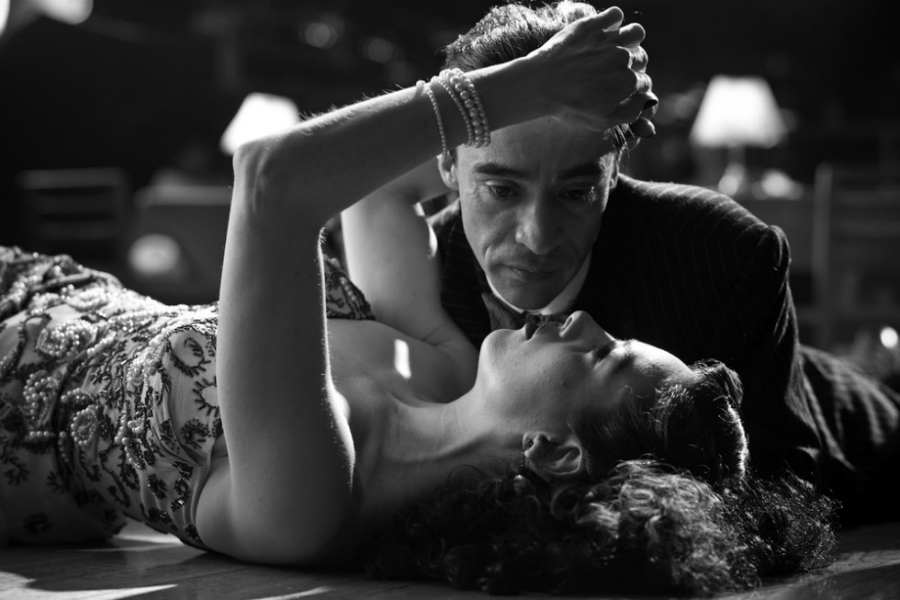Fast-Paced, Bold and Beautiful: ¡Viva! Festival 2014

As ¡Viva! film festival celebrates 20 years of bringing us the best of Spanish and Latin American cinema, Toby Hood is on hand to gauge 2014′s vintage…
Arriving at this year’s ¡Viva! film festival launch, the atmosphere was palpable — weekenders swelled the already packed foyer with their arrival, and some bewildered-looking Wes Anderson fans were caught in the foray. Amid the scrum, programme organisers Sarah Perks and Rachel Hayward arrived to make introductions and officially kick things off.
This year the festival dedicated to Spanish and Latin American cinema celebrates its 20th anniversary, and no film in the programme establishes a sense of Latin cinematic heritage better than El Fantastico Mundo de Juan Orol (Mexico, 2012). Based on the life of the ‘King of the B-movies’, this film is fast-paced, charming and fantastically flawed.
Director Sebastian del Amo took his cue from Orol’s own works, which were deemed “so bad they were good”; never taking itself too seriously, the fourth wall is broken by hammy asides while the production itself mirrors motion picture history, beginning with the humble silent movie moving through to saturated technicolour.
From the archetypal gangster to the iconic rumba dancers, every single expectation of classical film tribute is fulfilled in the film’s madcap comical style. It is boldly refreshing to see a film that stays so unashamedly gaudy for a whole 90 minutes. That’s not to say that El Fantastico wasn’t without its humane moments; touching base with the reality of its source; with each successive starlet that leaves him, Juan reflects on his first marriage that culminated in the death of the mother of his only son, and the piece’s climax similarly tests the audience’s sympathy with the ninety year-old director in an emotional final scene.
Back to the opening night and our Cornerhouse hosts are joined by director Gabriel Nesci, whose film Días De Vinilo (Argentina, 2012) screened its UK premiere at ¡Viva!. Apologies were given by Perks and Nesci for their linguistic shortcomings — Nesci proving the more adept at his second language, but points to Perks for trying.
The established television writer said of his first feature that it was a story about love and friendship, which didn’t leave this reporter with the most hopeful of preconceptions. As the group of main characters are introduced via 10-year old caricatures of their older selves, it became clear that the piece was best placed at the cheesy end of the comedy spectrum, not that such a film doesn’t have its place here.
Centered around four childhood friends who share a passion for music, Días De Vinilo joins them as they face individual mid-life crises, each brought about by the women in their lives; enduring their personal, relationship-induced torment, the group find comfort in their mutual love for antique vinyl. The frustrating thing about Días was its inconsistent flitting between very dark comedy — deafness, alcohol poisoning and gun crime providing the source of some jokes — and a more light-hearted, populist note, like in the relationship between the apathetic Damián and romantic opportunist Vera (played by award-winning XXY (2008) actress Inés Efron).
However, I will admit to appearing to have been in the minority, as the picture was well received by my fellow audience members who could not contain their laughter at what was, it has to be said, brilliant comic timing from a well-selected cast. Whether the director’s presence had anything to do with audience sensitivities, I will not be the one to decipher, but it certainly hit the right note for a festival launch.
On Saturday I attended the screening of Pelo Malo (Venezuela, 2013, above), a tense portrayal of one boy’s struggle from the slums of Caracas to express his individuality against his mother’s traditionally masculine aspirations for her son. A much grittier side to South America than Nesci’s romantic comedy, Mariana Rondón’s social drama is set in the background of a politically turbulent Venezuela.
At the post-screening Q & A, Rondón explained that she included real-life televised news reports of protests that occurred in the nation’s capital during the time of filming (May 2012-June 2013) in order to evoke the tensions of the time. The sense of over-population that Rondón speaks of in Caracas is presented in a beautifully directed scene where the two lead children play a ghetto version of Guess Who from the balconies of their thronging apartment block.
The film heavily relies on the talents of its child cast, as nine year-old Junior (played by first-timer Samuel Lange Zambrano) leads us from one troubled relationship to another; abused by his mother and grandmother, tortured by his confused feelings for an older boy and tackling his own stubborn curly hair.
Rondón told us that Zambrano was the first to audition for the role despite hundreds of others being considered. However, the adopted Viva poster boy was determined and repeatedly delivered outstanding performances in successive rounds of auditions. He is joined by the hilariously cheeky María Emilia Sulbarán, who proves an excellent supporting actress as the school-chum simply named La Niña (the kid).
At the ¡Viva! gala reception, it struck me that the guests couldn’t have been further away from Pelo Malo’s squalid settings. As I mingled with the actors and artists in attendance, supping complementary wine and looking ahead to the films I was yet to see, I wondered what works like Rondón’s had to offer a middle-class audience in the north-west of England.
The presence of Rondón’s translator at her Q & A — along with a technical mistake that began Juan Orol’s biopic in French subtitles — were regular indicators of the gulf that stood between the filmmakers and their British audience. But on hearing the directors talk of their work, it becomes obvious that their portrayals of relationships, personal struggle and the position of the individual in a community apply to South America as much as they do anywhere else in the world.
I couldn’t have found a more fitting example of this as I walked from the Cornerhouse to Piccadilly station on Sunday evening. On the way, an Hispanic man felt the need to shout at a passing lady on a bike the phrase “ten mi hijo” or “have my child” (clearly my exposure to Spanish this weekend hadn’t been a total waste). Needless to say, not the most progressive model of social integration I had seen all weekend, I left Manchester feeling that our Latin visitors can teach us other, more useful lessons, about universal humanity.
Toby Hood
¡Viva! Festival continues at Cornerhouse Manchester until Friday 21 March 2014; see here for all screenings
Special events this week include Wicked Women in Spanish Cinema, and a post-screening discussion of Los Golfos; see here for more info





